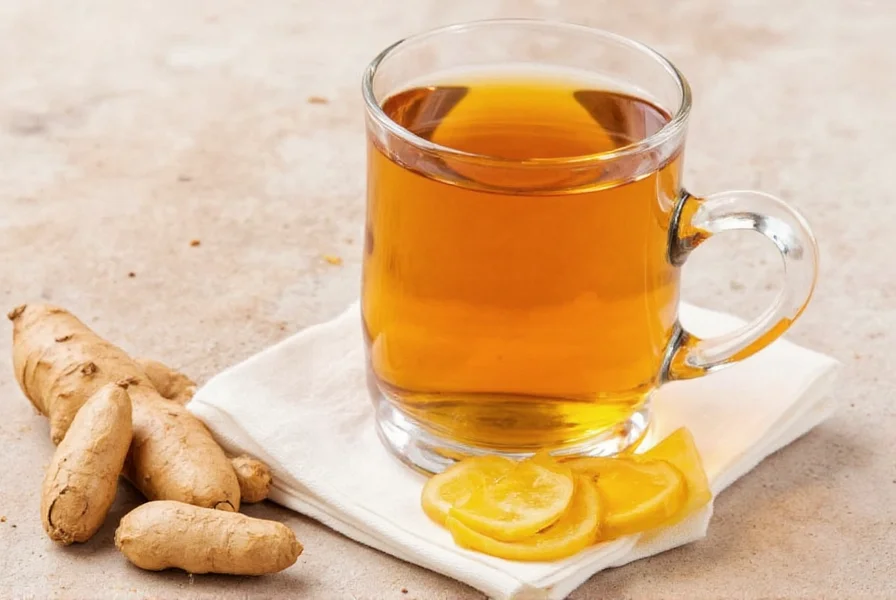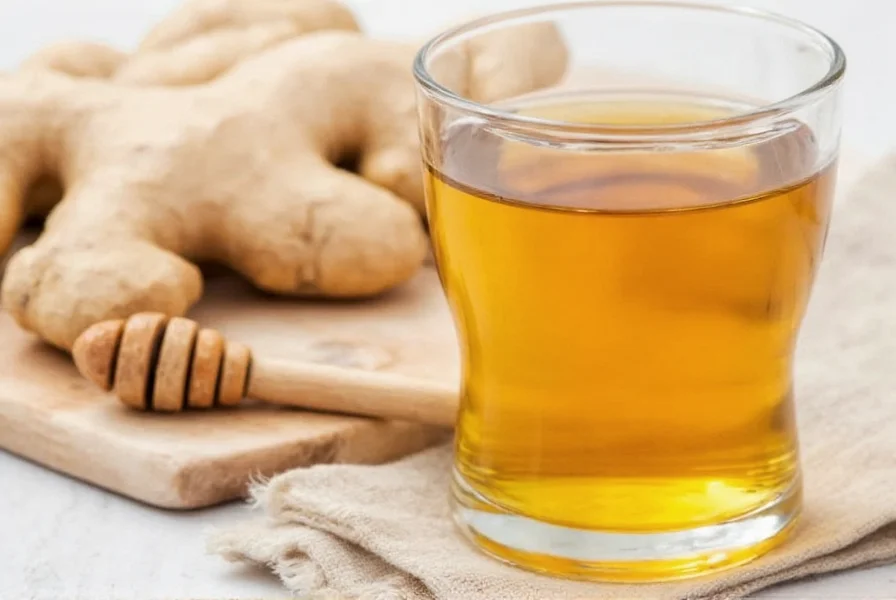Ginger root and honey tea represents one of the most accessible natural remedies available in kitchens worldwide. This potent combination leverages the bioactive compounds in ginger—primarily gingerols and shogaols—with honey's natural antibacterial properties and soothing texture. Unlike many commercial remedies, this tea provides a gentle approach to wellness without artificial additives.
The Historical Context of Ginger and Honey Remedies
Historical records show ginger root and honey combinations appearing in ancient Ayurvedic texts from India dating back to 500 BCE and traditional Chinese medicine practices from the same era. Egyptian papyri from 1550 BCE reference honey's medicinal uses, while ginger traveled along ancient spice routes from Southeast Asia to Europe. These ingredients formed the foundation of many traditional wellness practices across diverse cultures, from Roman apothecaries to medieval European herbalists.

Scientific Evidence Behind Ginger Root and Honey Tea Benefits
Modern research provides insight into why this traditional remedy persists. A 2020 review published in Nutrients analyzed multiple studies on ginger's effects, confirming its anti-inflammatory properties and effectiveness in reducing nausea. Honey's therapeutic value, particularly for cough suppression, received validation in a 2022 Cochrane Database systematic review comparing it to placebo and standard treatments.
| Benefit | Scientific Support Level | Key Research Findings |
|---|---|---|
| Nausea reduction | Strong evidence | Ginger significantly reduces pregnancy-related and chemotherapy-induced nausea |
| Cough suppression | Moderate evidence | Honey outperforms placebo for nighttime cough in children |
| Digestive support | Preliminary evidence | Ginger may accelerate gastric emptying and reduce bloating |
| Antioxidant properties | Emerging evidence | Both ingredients show free radical scavenging capabilities |
Preparing Authentic Ginger Root and Honey Tea
Creating effective ginger root and honey tea requires attention to preparation details that maximize bioactive compound extraction. The optimal method involves:
- Peel and thinly slice 1-2 inches of fresh ginger root
- Simmer slices in 2 cups of water for 15-20 minutes (longer simmering increases potency but may create stronger flavor)
- Strain the liquid into a cup
- Add 1-2 teaspoons of raw, unprocessed honey after the tea has cooled to below 140°F (60°C) to preserve honey's beneficial enzymes
For enhanced benefits, consider these evidence-based variations:
- Lemon-ginger-honey tea: Add fresh lemon juice after cooling for vitamin C and additional antioxidant effects
- Turmeric-ginger tea: Include a pinch of black pepper with turmeric to increase curcumin absorption
- Ginger-honey cough syrup: Simmer ginger in honey alone for 30 minutes to create a concentrated remedy
Important Considerations and Precautions
While generally safe for most adults, ginger root and honey tea requires certain precautions. The American College of Gastroenterology notes that ginger may interact with blood-thinning medications like warfarin. Individuals with gallstone disease should consult healthcare providers before regular consumption, as ginger stimulates bile production.
Honey should never be given to children under 12 months due to botulism risk. Those managing blood sugar levels should monitor honey intake, as one tablespoon contains approximately 17 grams of natural sugars. People with ginger allergies—though rare—may experience mouth irritation or digestive discomfort.

Maximizing Benefits Through Proper Consumption
Timing and frequency significantly impact the effectiveness of ginger root and honey tea. For digestive support, consume 20 minutes before meals. When addressing nausea, sip small amounts (¼ cup) every 30-60 minutes. For respiratory symptoms, consume while symptoms are present rather than as a preventive measure.
The optimal daily consumption ranges from 1-3 cups depending on purpose. Exceeding 4 grams of ginger daily (approximately 1.5 inches of fresh root) may cause heartburn or mouth irritation in sensitive individuals. Honey should be limited to 1-2 teaspoons per serving to balance benefits with sugar intake.
Conclusion
Ginger root and honey tea remains a valuable component of home wellness practices due to its accessibility, safety profile, and evidence-supported benefits. While not a cure-all solution, this simple beverage offers meaningful support for common discomforts when prepared and consumed properly. Its enduring presence across diverse traditional medicine systems, now validated by modern research, demonstrates the wisdom in these time-tested natural approaches to wellness.











 浙公网安备
33010002000092号
浙公网安备
33010002000092号 浙B2-20120091-4
浙B2-20120091-4